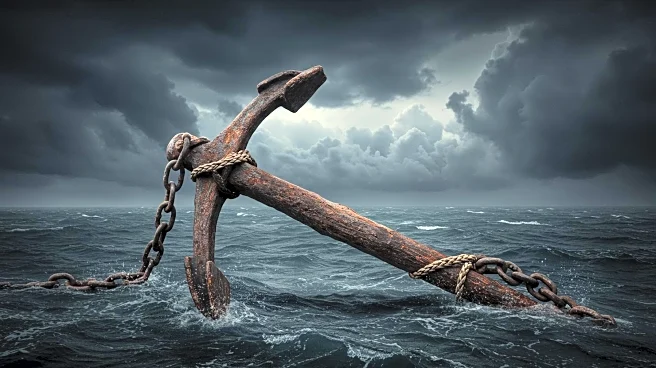What's Happening?
The marine salvage industry, represented by the International Salvage Union (ISU), is facing financial challenges despite its critical role in the shipping ecosystem. The ISU's latest statistics reveal that gross revenues from all sources in 2024 amounted to USD $406 million, marking a recovery from the low levels of 2022 but still significantly below typical levels from a decade ago. The ISU emphasizes the importance of financial sustainability for the industry, advocating for income from awards based on Article 13 of the Salvage Convention. This reward system compensates salvors who take financial risks to save property. The use of the traditional Lloyd’s Open Form contract has decreased, but the ISU continues to promote its use. Wreck removal, a significant part of salvors' work, generates about 50% of the industry's annual income, with ongoing revisions to related contracts.
Why It's Important?
The financial sustainability of the marine salvage industry is crucial for maintaining global trade and environmental protection. Salvors play a vital role in mitigating risks, saving lives, and preventing marine pollution. The industry's ability to respond to incidents, such as fires on containerships and battery fires on RoRos, is essential for reducing loss and keeping ports operational. The ISU's advocacy for financial sustainability ensures that salvors can continue to provide these critical services, supporting shipowners' reputations and their Environmental, Social, and Governance (ESG) requirements. The industry's challenges highlight the need for continued support from shipowners and the marine insurance community.
What's Next?
The ISU is working on revising wreck removal contracts, with a new edition of Wreckstage published in 2024. Further revisions to Wreckhire and Wreckfixed contracts are underway. The ISU will continue to monitor the use of the Lloyd’s Open Form contract and hopes for an increase in its application. The industry is also focusing on dealing with casualties powered by new types of fuel, such as LNG, hydrogen, and ammonia, which will be an increasing concern.
Beyond the Headlines
The marine salvage industry not only saves property and lives but also plays a significant role in preventing environmental disasters. In 2024, ISU members provided services to vessels carrying over 2.4 million tonnes of potential pollutants, demonstrating the industry's environmental benefits. The industry's work supports shipowners' ESG requirements, which are increasingly central to business operations.










